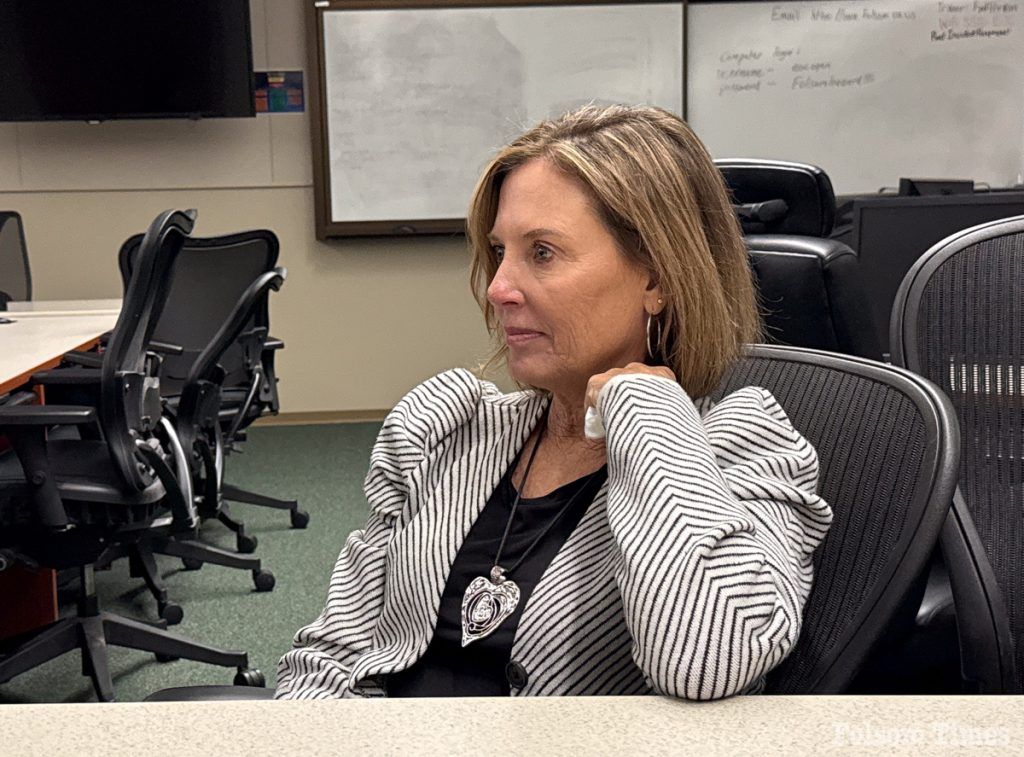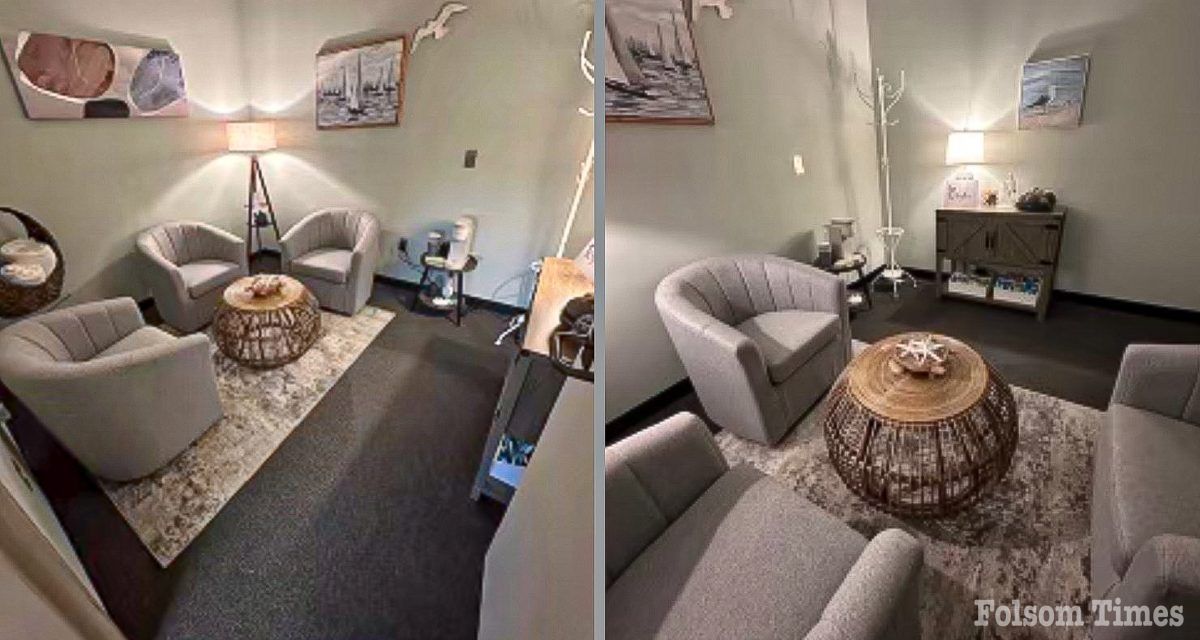Victims and witnesses of crimes handled by the Folsom Police Department now have a unique and comforting space to share their testimony with officers, thanks to a local nonprofit founded by a woman who is herself a survivor of a high-profile crime.
On Thursday afternoon, Kris Pedretti stood before members of the Folsom Police Department to share the story of her nonprofit and the horrific event that inspired her mission to support victims of rape, sexual assault, and other violent crimes. More than four decades ago, Pedretti was a victim of Joseph James DeAngelo Jr., the serial rapist and murderer known as the Golden State Killer and East Area Rapist. DeAngelo had early ties to Sacramento County and the communities of Folsom and Auburn.
DeAngelo, a former Folsom High School student and police officer in nearby Auburn, committed at least 13 murders, 51 rapes, and 120 burglaries across California between 1974 and 1986. His crimes remained unsolved for decades until April 2018, when investigators used forensic genetic genealogy to identify him through family members. DeAngelo was arrested at age 72 in his home near Fair Oaks.
Pedretti, who was the 10th victim on DeAngelo’s long list, had long given up hope that her attacker would be caught. Following his arrest, she foundedPhyllis’s Garden, a nonprofit dedicated to supporting victims of sexual assault and other crimes. Thanks to the organization’s efforts, the Folsom Police Department now has a fully furnished and equipped “soft interview room” to support victims during the investigation process. This room is one of several implemented at agencies statewide through the nonprofit’s initiatives.
“Folsom Police detectives often conduct interviews in a recorded room within the Criminal Investigations Division,” said Detective Gavin Plank. “Recently, we had the opportunity to add a second interview room, which we call the ‘soft interview room.’ This space is designed to help survivors of crime, domestic abuse, sexual assault, and children in traumatic situations feel more comfortable during interviews. It allows participants to feel physically and emotionally safe, which can significantly impact the interview process.”
Previously, crime victims were often interviewed in stark, impersonal rooms also used for questioning suspects. These spaces typically lacked comforting amenities like soft lighting, comfortable seating, and warm aesthetics. Instead, they were bare and utilitarian, with minimal furniture and harsh lighting.

On Thursday, the department unveiled the new room to staff and members of the media. During the event, Pedretti delivered a presentation in the department’s training room, sharing details of her experience as a teenager living in the Bay Area when DeAngelo attacked her. She recounted the trauma of being interviewed by law enforcement at the time, describing the process as nearly as frightening as the attack itself. Her presentation highlighted the importance of trauma-informed interviews, which focus on empathy, patience, and understanding to help victims navigate the process.
Key elements of trauma-informed interviewing include allowing victims to take breaks, asking simple and compassionate questions, avoiding rushed interactions, and prioritizing the victim’s emotional well-being. Pedretti emphasized that these practices can lead to more detailed and accurate testimony, aiding investigations and prosecutions.
“As I talk about this, remember it was a long time ago. Hopefully, things like this don’t happen as often today,” Pedretti told officers. “The detective at the time wasn’t mean, but he wasn’t compassionate. He wasn’t empathetic or kind—he just wanted the facts.”
Pedretti recalled being interviewed at the scene of the crime, an experience she hopes no victim will endure in the future. Thanks to the mission of Phyllis’s Garden, victims in Folsom and beyond will now have access to more supportive environments.
Phyllis’s Garden is named after Phyllis Henneman, DeAngelo’s first known victim. Pedretti and Henneman’s paths crossed in 2018 after DeAngelo’s arrest. The two women, initially nervous about meeting, found comfort in sharing their experiences and soon became friends. During DeAngelo’s prosecution, Henneman battled cancer but remained determined to see him sentenced to life without parole. She passed away shortly after his sentencing, inspiring Pedretti and Gay Hedrick, now the nonprofit’s secretary, to create Phyllis’s Garden in her honor.
The nonprofit is committed to providing survivors of sexual assault with the strength, support, and resources they need to rediscover their voices, share their stories, and find hope in healing.
Before the presentation concluded, the new room was already in use to interview a crime victim. While it’s unfortunate that crime will continue to occur, the Folsom Police Department now has a dedicated space to support victims thanks to Pedretti and her nonprofit’s work.
“It’s a secure space for detectives to interview victims and gather the necessary information to close cases,” Pedretti said. “This environment enhances the ability to gather accurate and detailed information, leading to more effective case resolution—that’s what we want.”
Due to California’s statute of limitations on pre-2017 rape cases, DeAngelo could not be charged with the rapes he committed in the 1970s, including Pedretti’s case. However, he was charged in August 2018 with 13 related kidnapping and abduction attempts. On June 29, 2020, DeAngelo pleaded guilty to multiple counts of murder and kidnapping. As part of a plea bargain that spared him the death penalty, he also admitted to numerous crimes for which he had not been formally charged. On Aug. 21, 2020, DeAngelo was sentenced to life imprisonment without parole.
To learn more about Phyllis’s Garden, visitwww.phyllissgarden.com.


 " />
" />
